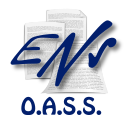The TopFuel 2018 Programme Committee is calling for both oral and poster presentations regarding :
Operation and experience
Fuel operating experience and performance (reliability, fuel assembly degradation and failures, handling issues, water side corrosion and hydriding, stress corrosion cracking, PIE, pool side examinations, radiation effects, etc.); water chemistry and corrosion/crud/dose counter-measures; fuel assembly distortion; mixed core operation; reload variability; operation flexibility (power modulation or load follow); fuel assembly repair, fuel qualification and licensing; fuel supply strategy; fluence reduction design; end of reactor life: management of final cycles.
Used fuel: storage, transportation and re-use
Closed fuel cycles (re-use); re-use after transportation/storage; interim storage, dry storage, wet storage, long term storage strategies (incl. ATF); handling and transportation of damaged, high BU and non-standard fuels (incl. ATF); handling and treatment of leaking fuel; R&D activities; ageing issues; criteria and regulation; long term fuel database management.
Advances in designs, materials and manufacturing
Fuel Assembly design; fuel design, processing and manufacturing; cladding and structural alloys development; mechanical and corrosion resistant behaviour; irradiation experience in MTR; fuel design optimisation for fluence reduction and for disposal; qualification and licensing.
Enhanced accident tolerant fuel (EATF)
Advanced fuel designs, fuel rod, fuel cladding and component materials behaviour; in-pile experience; qualification and licensing issues; deployment scenarios; full scale implementation from manufacturing to reactor operation and back-end.
Modelling, analysis and methods
Development, verification, validation and uncertainty quantification (VVUQ) of fuel modelling codes; multiscale modelling (including ab initio); multi-physics; water chemistry modelling; experimental data and applicability; transposition to in-reactor and back-end conditions; statistical uncertainty analysis; design and analytical methods; big data applications.
Transient Fuel Behaviour Transient fuel behaviour (RIA, LOCA, ATWS, PCI/SCC, PCMI …), criteria and regulations; fuel safety related issues (e.g. fuel fragmentation, relocation and dispersal; long term coolability; re-criticality; transient fission gas release; cladding burst/ballooning mechanisms; fuel behaviour under extended loss of cooling); small and large scale fuel testing facilities.
Mark your diaries and be a part of it!
We welcome both oral and poster submissions. If you wish to share your knowledge and insights with fellow-members of the reactor fuel community, please submit your abstract by 9 March 2018 through the TopFuel 2018 Abstract Submission System.
For abstract submission please go to our TOPFUEL 2018 Abstract Submission System.

Abstract review
The abstracts received will be peer reviewed under the auspices of the TopFuel 2018 Programme Committee. Authors will be notified of abstract acceptance by 23 March 2018.
Important dates
- Deadline for abstract submission: 9 March 2018
- Notification of authors: 23 March 2018
- Deadline for full paper submission for peer review: 18 May 2018
- Notification of result of peer-review: 29 June 2018
- Deadline for submission of revised paper: 31 August 2018
- Final deadline for full paper submission: 15 September 2018
- Deadline for submission of presentations files: 20 September 2018
- Conference: 30 September – 4 October 2018
Instructions for authors
